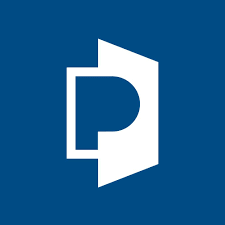Quality Assurance classes near me

Quality assurance (QA) is crucial for companies to deliver high-quality products and services, maintain a positive reputation, and achieve long-term success in today's competitive business environment. QA is a systematic process that prevents defects and errors throughout the product development lifecycle, using testing, inspection, and validation procedures to identify and address issues early on. It is essential across various industries, and QA professionals use tools and techniques like test automation, statistical analysis, and continuous improvement methodologies to ensure the highest standards of quality. Effective QA helps companies deliver better products, drive efficiency, reduce waste, and improve organizational performance.
Some say a QA career is unstable, but I believe that for most, it becomes unstable when you are not updated with current technologies and not enhancing your education or skillset. Keeping your options open, enhancing your skill set, and staying abreast of the latest advancements in technology are essential steps to ensuring stability and success in the QA field.
Dreambound offers quality assurance training programs to help individuals explore a rewarding career in this dynamic field. Delve into the authentic reflection and thoughts of our student as they share their journey with us:
- "Dreaming about joining a class where I can explore my thoughts, and Dreambound has given me hope and motivation to work towards my educational goals. I am excited to learn and shape my future. I appreciate being reminded of the opportunities ahead. ��" — Shaniah Phillips Chessman
- "Easy steps that walk you through your options.Dreambound is an awesome platform." — Charlinda Pearson
- "Dreambound is easy to navigate, covers everything, and provides straightforward information." — Ruby Topete
Quality Assurance by City
In order to help you find a Quality Assurance class, at Dreambound we've gathered the most comprehensive list of Quality Assurance classes in the US. Below you can find a list of Quality Assurance classes, organized by city. If you don't see your city listed, you can always search by zipcode
- Quality Assurance classes near me in Akron
- Quality Assurance classes near me in Albany
- Quality Assurance classes near me in Albuquerque
- Quality Assurance classes near me in Allentown
- Quality Assurance classes near me in Atlanta
- Quality Assurance classes near me in Augusta
- Quality Assurance classes near me in Austin
- Quality Assurance classes near me in Bakersfield
- Quality Assurance classes near me in Baltimore
- Quality Assurance classes near me in Baton Rouge
- Quality Assurance classes near me in Birmingham
- Quality Assurance classes near me in Boise City
- Quality Assurance classes near me in Boston
- Quality Assurance classes near me in Bridgeport
- Quality Assurance classes near me in Buffalo
- Quality Assurance classes near me in Cape Coral
- Quality Assurance classes near me in Charleston
- Quality Assurance classes near me in Charlotte
- Quality Assurance classes near me in Chicago
- Quality Assurance classes near me in Cincinnati
- Quality Assurance classes near me in Cleveland
- Quality Assurance classes near me in Colorado Springs
- Quality Assurance classes near me in Columbia
- Quality Assurance classes near me in Columbus
- Quality Assurance classes near me in Dallas/Fort Worth
- Quality Assurance classes near me in Dayton
- Quality Assurance classes near me in Deltona
- Quality Assurance classes near me in Denver
- Quality Assurance classes near me in Des Moines
- Quality Assurance classes near me in Detroit
- Quality Assurance classes near me in Durham
- Quality Assurance classes near me in El Paso
- Quality Assurance classes near me in Fresno
- Quality Assurance classes near me in Grand Rapids
- Quality Assurance classes near me in Greensboro
- Quality Assurance classes near me in Greenville
- Quality Assurance classes near me in Harrisburg
- Quality Assurance classes near me in Hartford
- Quality Assurance classes near me in Houston
- Quality Assurance classes near me in Indianapolis
- Quality Assurance classes near me in Jackson
- Quality Assurance classes near me in Jacksonville
- Quality Assurance classes near me in Kansas City
- Quality Assurance classes near me in Knoxville
- Quality Assurance classes near me in Lakeland
- Quality Assurance classes near me in Las Vegas
- Quality Assurance classes near me in Little Rock
- Quality Assurance classes near me in Los Angeles
- Quality Assurance classes near me in Louisville/Jefferson County
- Quality Assurance classes near me in Madison
- Quality Assurance classes near me in McAllen
- Quality Assurance classes near me in Memphis
- Quality Assurance classes near me in Miami
- Quality Assurance classes near me in Milwaukee
- Quality Assurance classes near me in Minneapolis
- Quality Assurance classes near me in Nashville
- Quality Assurance classes near me in New Haven
- Quality Assurance classes near me in New Orleans
- Quality Assurance classes near me in New York
- Quality Assurance classes near me in North Port
- Quality Assurance classes near me in Ogden
- Quality Assurance classes near me in Oklahoma City
- Quality Assurance classes near me in Omaha
- Quality Assurance classes near me in Orlando
- Quality Assurance classes near me in Oxnard
- Quality Assurance classes near me in Palm Bay
- Quality Assurance classes near me in Philadelphia
- Quality Assurance classes near me in Phoenix
- Quality Assurance classes near me in Pittsburgh
- Quality Assurance classes near me in Portland
- Quality Assurance classes near me in Poughkeepsie
- Quality Assurance classes near me in Providence
- Quality Assurance classes near me in Provo
- Quality Assurance classes near me in Raleigh
- Quality Assurance classes near me in Richmond
- Quality Assurance classes near me in Rochester
- Quality Assurance classes near me in Sacramento
- Quality Assurance classes near me in Salt Lake City
- Quality Assurance classes near me in San Antonio
- Quality Assurance classes near me in San Bernardino/Riverside
- Quality Assurance classes near me in San Diego
- Quality Assurance classes near me in San Francisco
- Quality Assurance classes near me in San Jose
- Quality Assurance classes near me in Scranton
- Quality Assurance classes near me in Seattle
- Quality Assurance classes near me in Spokane
- Quality Assurance classes near me in Springfield
- Quality Assurance classes near me in St. Louis
- Quality Assurance classes near me in Stockton
- Quality Assurance classes near me in Syracuse
- Quality Assurance classes near me in Tampa
- Quality Assurance classes near me in Toledo
- Quality Assurance classes near me in Tucson
- Quality Assurance classes near me in Tulsa
- Quality Assurance classes near me in Urban Honolulu
- Quality Assurance classes near me in Virginia Beach
- Quality Assurance classes near me in Washington
- Quality Assurance classes near me in Wichita
- Quality Assurance classes near me in Winston
- Quality Assurance classes near me in Worcester
- Online Quality Assurance classes
How to Become a QA
We know taking the first step to becoming a QA can be scary. That's why we're trying to demystify the process by writing guides on how to become a QA. Since state processes or requirements may vary, we've written separate guides for each state:
- How to Become a QA in Alabama
- How to Become a QA in Alaska
- How to Become a QA in Arizona
- How to Become a QA in Arkansas
- How to Become a QA in California
- How to Become a QA in Colorado
- How to Become a QA in Connecticut
- How to Become a QA in Delaware
- How to Become a QA in District of Columbia
- How to Become a QA in Florida
- How to Become a QA in Georgia
- How to Become a QA in Hawaii
- How to Become a QA in Idaho
- How to Become a QA in Illinois
- How to Become a QA in Indiana
- How to Become a QA in Iowa
- How to Become a QA in Kansas
- How to Become a QA in Kentucky
- How to Become a QA in Louisiana
- How to Become a QA in Maine
- How to Become a QA in Maryland
- How to Become a QA in Massachusetts
- How to Become a QA in Michigan
- How to Become a QA in Minnesota
- How to Become a QA in Mississippi
- How to Become a QA in Missouri
- How to Become a QA in Montana
- How to Become a QA in Nebraska
- How to Become a QA in Nevada
- How to Become a QA in New Hampshire
- How to Become a QA in New Jersey
- How to Become a QA in New Mexico
- How to Become a QA in New York
- How to Become a QA in North Carolina
- How to Become a QA in North Dakota
- How to Become a QA in Ohio
- How to Become a QA in Oklahoma
- How to Become a QA in Oregon
- How to Become a QA in Pennsylvania
- How to Become a QA in Rhode Island
- How to Become a QA in South Carolina
- How to Become a QA in South Dakota
- How to Become a QA in Tennessee
- How to Become a QA in Texas
- How to Become a QA in Utah
- How to Become a QA in Vermont
- How to Become a QA in Virginia
- How to Become a QA in Washington
- How to Become a QA in West Virginia
- How to Become a QA in Wisconsin
- How to Become a QA in Wyoming
Exploration of Quality Assurance Versus Other Programs
Considering other programs? Read our guides on Quality Assurance versus other similar programs in field, providing a comprehensive overview to assist you in making the right choice for your career path.
- CAD (Computer-Aided Design) vs Quality Assurance
- Computer Network Administration vs Quality Assurance
- Cybersecurity vs Quality Assurance
- Data Analytics vs Quality Assurance
- Electronics Engineering vs Quality Assurance
- Product Management vs Quality Assurance
- Quality Assurance vs Software Developer
- Quality Assurance vs Technical Project Management
- Quality Assurance vs UX/UI Design
Other related topics

Jessa Guzon is a member of the School Growth and Customer Success Team in Dreambound. She finds joy in assisting both schools and students in reaching their goals by answering their queries and connecting them with the right people. Outside her professional role, Jessa is a happy-go-lucky person with a thirst for adventure.



